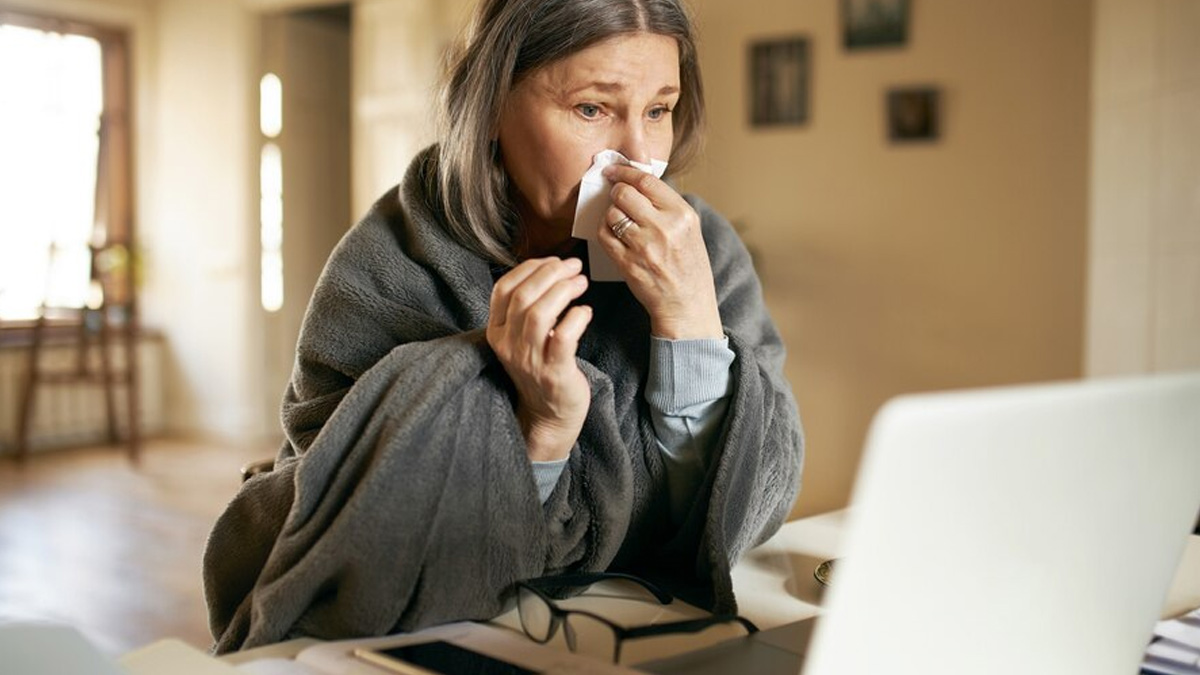
Respiratory infections in winters have been a malady plaguing mankind since ages. In the pre-vaccination and pre-antibiotic era such infections in winters were a major cause of epidemics wreaking havoc in terms of mortality and morbidity. The fatality rate with such infections started to decline with the advent of powerful antibiotics and effective vaccines. However, the virus has always pushed human ingenuity with its capability to mutate and evade defences set up. Then came COVID-19, and it unleashed its venom with winter as its dubious counterpart. Two years later the novel virus has been somewhat restrained but worlds on a cautious watch on what might unfold next.
Table of Content:-
Even though it’s an undisputed fact that winters exacerbate respiratory conditions, there exists a lot of debate for the reasons behind this. It’s been suggested that as people tend to huddle together in households and stay indoors to avoid the harsh winter, the proximity and clustering leads to the viral infections in winters spreading fast and easily. Microbiologists have proposed that viruses tend to survive longer in cold and dry climates adding to its sting and pathogenicity. It’s been suggested that winter with its temperature drop also affects the nasal mucosa with an average drop in temperature by 5 degree C leads to significant impairment of extracellular vesicles (EV) and impaired local lung immunity leading to a viral surge.
According to Dr Vishak Acharya K, Professor, Department of Respiratory Medicine, Kasturba Medical College Mangaluru, Manipal Academy of Higher Education, Manipal, “Winters affect the lungs mostly by triggering a surge of infections (predominantly viral and bacterial) but also can lead to allergic flares in some. The population most vulnerable by this deadly combination are the paediatric age group, elderly and the immune-compromised section in whom the disease runs a more protracted and serious course.”
Also Read: What Is Lung Cleansing And Why You Should Do It

Winters may herald the march of infections in some with healthy lungs but in many it’s those with pre-existing lung diseases who tend to have a worse outcome. In most settings the impact of such respiratory illnesses are acute but it’s been increasingly observed that viral infection in winters in a few can run a protracted course too, especially in atopic population initiating asthma and few other chronic respiratory ailments.
Commonly around 8 respiratory ailments have been identified as causing respiratory conditions in winter.
- Common cold
- Flu / Influenza
- Sinusitis
- Bronchiolitis
- Bronchitis
- Pneumonia
- Asthma
- Chronic obstructive pulmonary disease (COPD).
Dr Unnikrishnan B, Dean & Professor, Department of Community Medicine, Kasturba Medical College Mangaluru, Manipal Academy of Higher Education, Manipal shares, “Since the cause of respiratory illnesses in winters is multifold there is no single remedy that offers a blanket of cure in these cases.”
How to Take Care of Lungs in Winter
The steps to protect the lungs and shield them from the thwart of winter and infections is a multimodal approach.
Also Read: Can Winters Really Make Pain Worse? Effective Tips To Manage Pain in Winters
Lifestyle modifications & home remedies
The vulnerable populace like the children and the elderly can take preventive measures like avoiding crowded places, frequent hand washing, use of sanitizers and usage of masks in specific settings. Rest, home-cooked food and adequate hydration are simple tips that help, cool mist humidifiers, steam inhalation, gargles, sucking throat lozenges help in clearing nasal and throat secretions alleviating discomfort. Vitamin C and Zinc supplements have anecdotal evidence of reducing the duration and severity of symptoms in few. Home remedies, Grandma's concoction of medicines and herbal extracts have proven their utility too over the years.
Medical interventions
Periodic and early physician visits in the context of respiratory illnesses in winters help in stratifying the diseases based on their severity and aid in intervening early in many cases. Most viral infections are self-limiting and wane off in due course. But a minority can lead to a progressive more severe disease triggering a hyper inflammatory response. Timely institution of antibiotics / steroids in such cases are critical in warding off severe disease.
Also Read: Impact Of Chronic Snoring On Heart And Lungs

Optimization of pre-existing disease states
Asthmatics, COPD and those with pre-existing chronic respiratory and cardiac diseases tend to bear the onslaught of winters more severely than the rest. Optimising the baseline disease states in such chronic diseases with regular medications has proven to reduce the severity of such exacerbations, shorten hospital stay and lessen mortality too.
Vaccines
Vaccines administered as per immunisation schedule in childhood have shown to have significant impact in blunting the ferocity of viral infections in children. In adult’s, vaccines are available for strains of bacterial pneumonia like Prevanar-13 and polyvalent conjugate vaccines. Annual influenza vaccinations have proven to lessen the impact of the virus. Both these are indicated in specific settings like elderly, immune-compromised, chronic disease states, malignancy on immune-suppressant medications etc.
Final Word
Respiratory illnesses compounded by the woes of winter is a dreaded combination that’s stalked mankind since eternity. Science has taken giant steps in countering this challenge. But it’s a long and protracted battle that needs constant innovation and novel strategies for us to start breathing fresh air again without stifling our breath.
Also watch this video
How we keep this article up to date:
We work with experts and keep a close eye on the latest in health and wellness. Whenever there is a new research or helpful information, we update our articles with accurate and useful advice.
Current Version